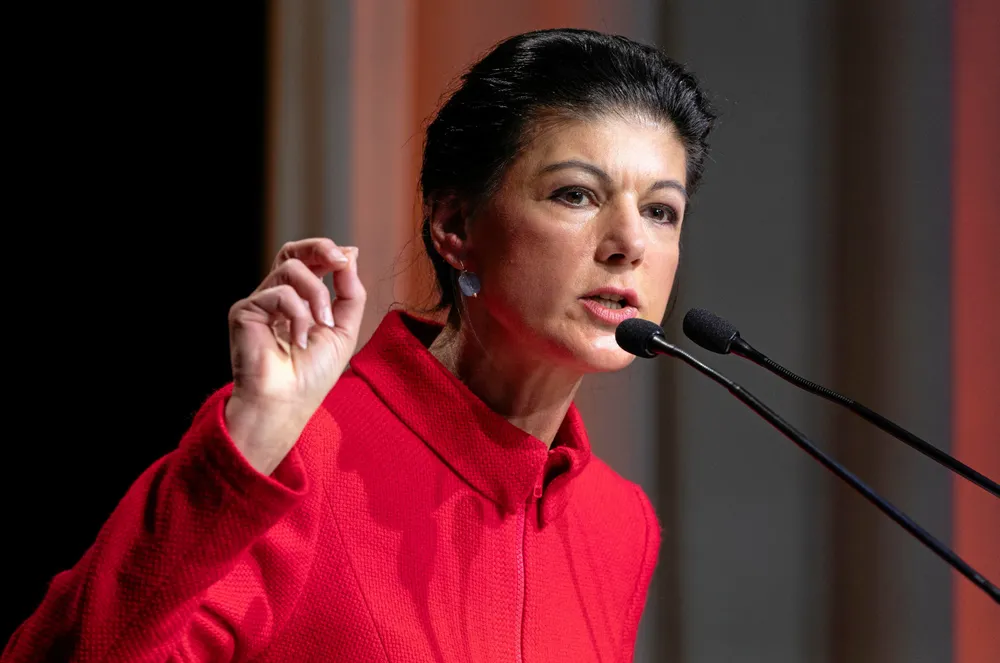Far-right and populist surge threatens wind power in Eastern Germany
Elections in three states could lead to victories for parties whose reasons for disliking wind energy range from outright climate scepticism to a desire to see a resumption of Russian gas deliveries.

Elections in three eastern German states in the coming weeks could bring unprecedented victories for far-right and populist left parties who disagree on most things but share a common dislike of a federally driven expansion of wind energy.
Recent opinion polls for Saxony and Thuringia, which hold elections for state parliaments next Sunday, show support for the Alternative for Germany (AfD) at 30% or higher, which would make the far-right party the strongest party in Thuringia, and possibly also in Saxony.
The AfD has denied man-made climate change, and lobbies for an end to new wind power and a repeal of a Renewable Energies Act (EEG) that has been instrumental in boosting Germany’s green power share to close to 60%.
Wagenknecht has lobbied for what she calls a “sensible” instead of an “ideology-driven” climate policy, an end to weapons deliveries to Ukraine and a resumption of Russian gas deliveries. Its position on wind power is less hostile than the AfD and includes demands that locals through ‘citizen’ wind and solar farms receive a share of revenues, something the outgoing government of Thuringia has already enshrined in legislation.
In Brandenburg, the state surrounding Berlin which goes to the polls three weeks later, the AfD is seen at up to 24% and the BSW at around 17%.
The conservative Christian Democratic Union (CDU) of former Chancellor Angela Merkel in Saxony could reach around 30%, in Thuringia little over 20% and in Brandenburg less than that.
The Social Democrats (SPD) of current Chancellor Olaf Scholz, the Greens and liberals (FDP) in Saxony and Thuringia face an uphill struggle to even cross the 5%-threshold needed to enter state legislations.
This means that the centre-left coalitions in all three states may no longer have a majority.
A knife attack during the past weekend by a Syrian asylum seeker in a German small town that left three people dead could further strengthen the anti-immigrant AfD, and possibly the BSW as well, which has also been critical of immigration levels.
The CDU so far has ruled out forming a government with the AfD, but seems to warm up to a link-up with the BSW at least on a state level.
Germany’s energy and manufacturing industry is alarmed by the rise of the far-right and left-wing populists.
“The AfD is a threat to Germany as a business location – this is what more than 50% of companies in East Germany say, and in the West, according to a survey by the German Economic Institute, the figure is even higher,” Joe Kaeser said on LinkedIn, the chairman of Daimler Truck and Siemens Gamesa parent Siemens Energy. Siemens Energy has factories in Görlitz in Saxony and Erfurt in Thuringia.
The AfD’s demands to abolish or exit the EU or the euro endanger the sources of German wealth, such as the country’s export strength, Kaeser argues.
The party’s nationalisation ambitions and inflammatory race rhetoric scare off foreign employees or prompt them to move to Western Germany, Kaeser lamented.
Companies in all industries currently have difficulties finding specialised staff, even more so in Eastern Germany, increasing reliance on immigrants.
Manufacturing federation VDMA, which also includes a section of wind OEMs, ahead of the state elections warned of “false promises from extremist parties and politicians who want to isolate us and thereby set us back a long way.
“A climate of fear created by the xenophobia of extremist parties scares everyone away – and thus also threatens the existence of our companies!” the group said in a statement.
Björn Höcke, candidate for state premier in Thuringia for the AfD and Germany's best-known neo-Nazi, during the election campaign, called businesses lobbying for diversity "hypocrites", who should just "shut up".
"I hope that these companies get into serious, serious economic turmoil," Höcke added at a rally in Sömmerda, Thuringia, over the weekend.
Much depends on whether the CDU will be able to form state governments with the BSW, or possibly what’s left of the SPD and Greens.
But the conservatives in Eastern Germany are also welcoming wind power much less than in the West. In Thuringia, the CDU together with the FDP and the AfD late last year pushed through legislation that all but bans the installation of wind turbines in forests.
Saxony, Thuringia and Brandenburg combined have only 8.7m inhabitants, or little more than a tenth of Germany’s population. Future governments hostile to wind power in those states would be a blow for the sector nevertheless, also as anti-wind sentiment and voting intentions for the far right and left are growing across the country.